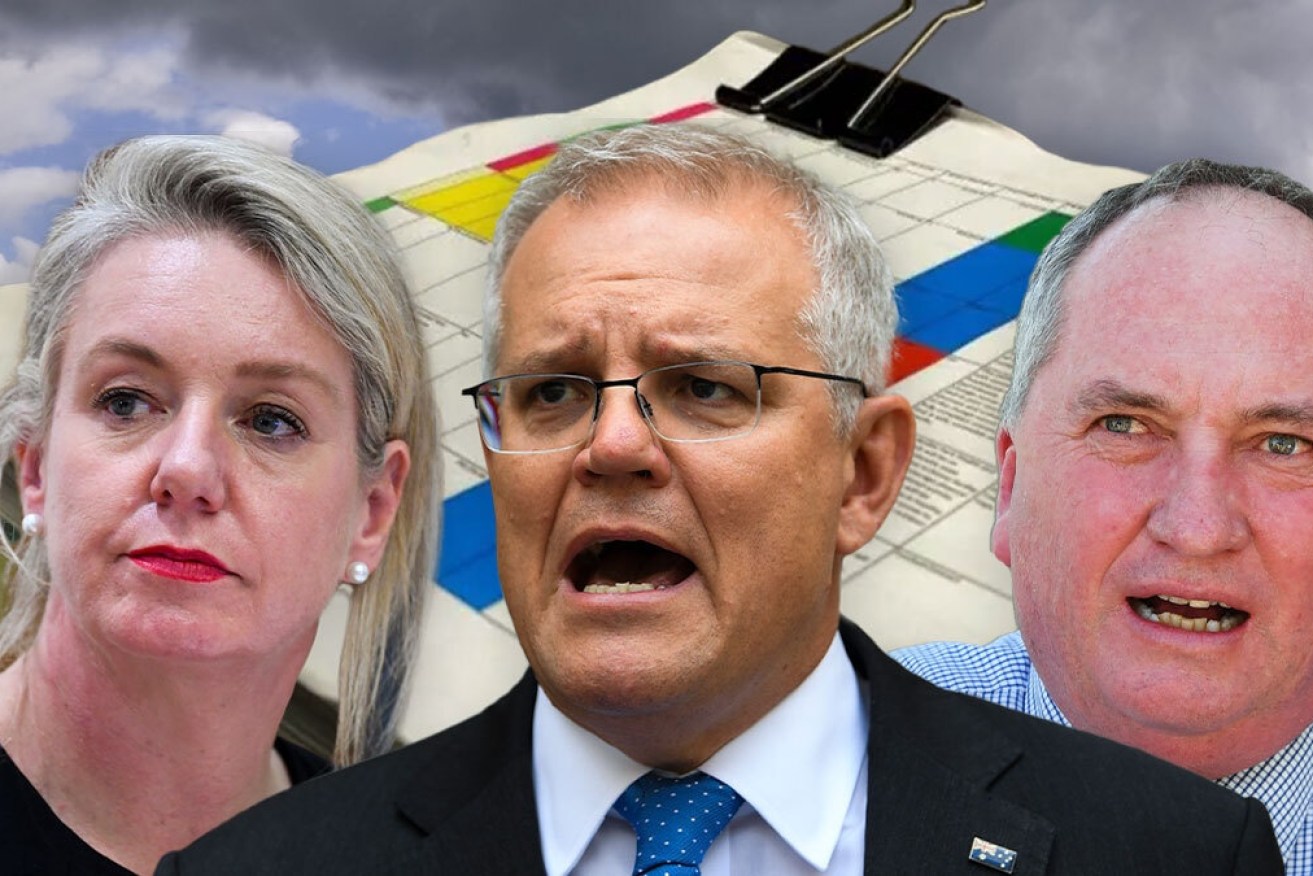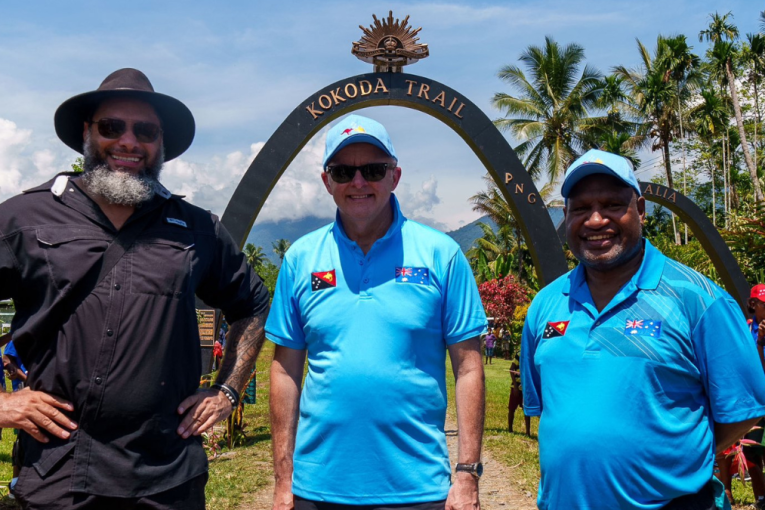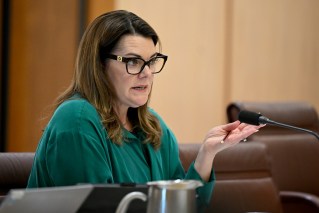A federal anti-corruption commission could investigate Morrison government grants


The Morrison government's alleged misuse of public money could soon be investigated. Photo: TND
A federal anti-corruption commission will investigate previous governments and cases including pork barrelling, raising the prospect that billions of dollars in Morrison government grants will come under scrutiny or investigation.
Attorney-General Mark Dreyfus provided the new details about the scope of the national anti-corruption commission on Wednesday.
The government has pledged to legislate the body by Christmas and a key Senator last night welcomed the government’s initial work on the bill.
Pork barrelling, or misusing public money for political purposes, has long been part of national politics, but one expert said the practice had recently reached new heights under unprincipled leaders and even sometimes appeared to breach laws against electoral bribery.
Mr Dreyfus said the government would legislate to create a body with the powers of a royal commission and which operated independently.
“It’s going to deal with serious and systemic corruption,” he said. “It’s going to be able to receive allegations from a whole range of sources.”
The Attorney-General reaffirmed the body would hold public hearings and be able to consider past incidents of corruption including so-called pork barrelling.
Sudden rise
AJ Brown, an expert in political corruption at Griffith University, said long-established pork barrelling had recently morphed into the systemic misuse of funds and wholesale attempts at vote-buying arguably in breach of criminal law.
“It’s probably for a combination of all sorts of different political factors that, since about 2016, [pork barrelling] just seemed to have broken out like a disease at the state and federal level,” Professor Brown said.
“I think the Morison government was particularly prone to it, [and acting] out of political desperation started to pork barrel really heavily in 2019.
“The Coalition just pumped money out wherever they could, with very little regard for proper process.
“Once it descends to this level, there’s a real problem.
“In some cases, [it] arguably has crossed over the line into being actual electoral bribery, effectively giving people money in order to vote for you.”

Attorney-General Mark Dreyfus said the commission would be powerful and independent. Photo: AAP
Party favours
Mr Dreyfus did not say how far back inquiries might stretch and said only that this would be a matter for the future commission.
Geoffrey Watson, the barrister who acted for the NSW Independent Commission Against Corruption in many famous inquiries, said it was vital that any commission have broad powers and work to an inclusive definition of corruption.
“Where do you draw the line? Once you start allocating money inconsistently with a public purpose,” he said.
Mr Watson said commissioners, likely former judges or people with similar professional experience, would need a free hand to choose referrals, and noted that an ICAC inquiry into NSW Labor MP Eddie Obeid began with an anonymous tip.
“This is not about local politicians,” he said.
“It’s ministers sitting in an office, making decisions, sometimes involving tens of millions of dollars, which are designed to favour a party.”
A likely kingmaker in the new upper house, independent Senator-elect David Pocock, welcomed indications from Mr Dreyfus that the government would adopt much of a model proposed by Victorian independent Helen Haines and involve her in drafting the legislation.
“This is the sort of politics-done-better approach Australians want to see,” the incoming senator from the ACT said.
He campaigned strongly on integrity issues and said any anti-corruption body must have the authority to investigate recent cases of “questionable” public expenditure under the former Coalition government.
“I will wait to see the detail of what the government is proposing and my support will be contingent on ensuring the final package matches the strength and breadth of Helen Haines’ bill,” he said.

Bridget McKenzie resigned from the federal ministry over the so-called sports rorts saga in February 2020. Photo: AAP
Funding controversies
Analysis of $3.9 billion in federal spending programs under the previous Coalition government by the Australia Institute found that 71 per cent of money was allocated to its own electorates.
Outstanding examples from the previous Parliament included:
The commuter car park fund
Some three-quarters of a $650 million fund designed to build car parks near train stations was funnelled into Coalition seats.
Commonwealth auditors found the scheme was poorly planned, administered without consultation, and heavily geared toward marginal Coalition seats in Melbourne.
None of the projects had actually been proposed by the public service and choices were “not demonstrably merit based” and approvals were rushed through without local consultation.
Ten of the projects were not attached to train stations, yet Alan Tudge resisted calls from Labor to resign over the project.
Sports rorts
Former Sports Minister Senator Bridget McKenzie had to resign from cabinet after an auditor-general report was harshly critical of a $100 million sporting infrastructure fund allocated on the eve of the 2019 election.
The report raised the possibility that the entire scheme was illegal.
Hundreds of grants assessed as worthy were knocked back while others in marginal seats were approved.
A colour-coded spreadsheet of marginal seats and grant allocations was famously prepared by Senator McKenzie’s office around the time it was deliberating.
Regional grants program
“I don’t care,” Barnaby Joyce said when presented with figures showing 90 per cent of a regional grants program had gone to Coalition seats.
The Building Better Regions Fund allocations topped $1.35 billion and skewed heavily to regional Coalition electorates.
Of the $294 million “infrastructure projects stream” in round five of the program, 11 per cent went to seats held by independents and 73 per cent went to Coalition seats.
New Coalition leader Peter Dutton has indicated support for an anti-corruption body, something the Morrison government promised to introduce to Parliament but did not.








